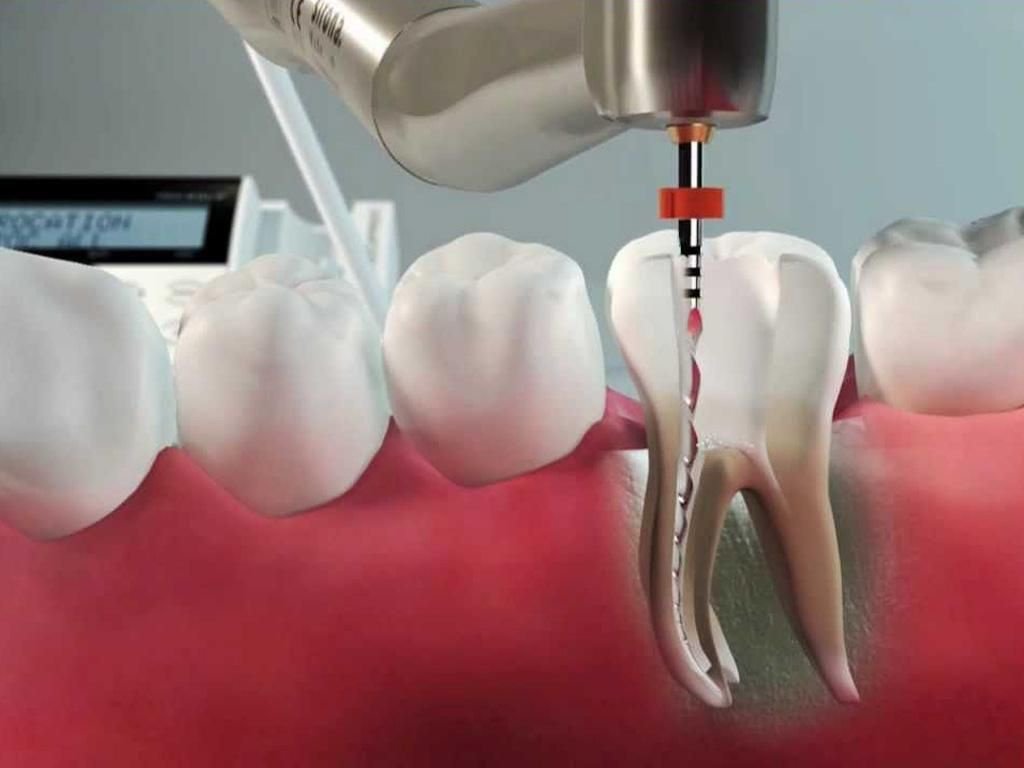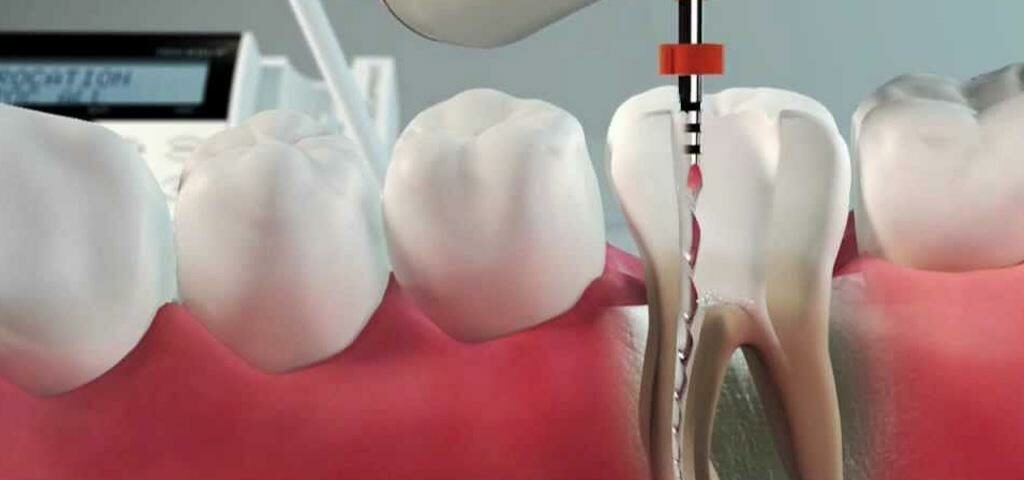Root canal treatment, also known as endodontics, is one of the most common and important dental procedures to save teeth that would otherwise need to be extracted. Although many people associate root canal treatment with a painful experience, it is actually a relatively simple and effective procedure to restore dental health. In this article, we will explain what root canal treatment is, who needs it, and how to prevent dental problems before needing a root canal.

What Is Root Canal Treatment?
Root canal treatment is a dental procedure aimed at treating the inside of the tooth, known as the pulp. The pulp is made up of nerves and blood vessels that are responsible for the tooth’s sensation. When this area of the tooth becomes infected or inflamed, usually due to deep cavities or traumatic injuries, root canal treatment becomes necessary to prevent tooth loss.
The procedure involves removing the damaged pulp, cleaning the root canal (the channels inside the tooth root), disinfecting the area, and finally filling the space with a biocompatible material to seal it. After the treatment, the tooth is restored with a crown or another type of restoration to ensure its functionality and aesthetics.
Why Is Root Canal Treatment Needed?
Root canal treatment is necessary when the pulp of the tooth becomes damaged or infected. This can happen for several reasons, with the most common being:
- Deep Cavities: Cavities are the leading cause of pulp infection. If a cavity is not treated properly and spreads to the inside of the tooth, it can lead to pulp infection.
- Dental Trauma: A blow or injury to the tooth can damage the pulp, even without cavities present. This can lead to inflammation or necrosis (death of tissue) in the pulp.
- Infection: A bacterial infection can spread into the tooth and affect the pulp, causing intense pain and even a dental abscess.
- Excessive Sensitivity: If you experience intense pain when eating hot or cold foods, it may be a sign that the tooth’s nerve is compromised and a root canal is needed.
Who Needs Root Canal Treatment?
Although root canal treatment is primarily recommended for people with severe pulp problems, not all teeth need this procedure. Those who require root canal treatment typically show symptoms such as:
- Severe and constant pain: Tooth pain, especially when it worsens at night, can be a sign of pulp infection.
- Prolonged sensitivity: If you feel pain or discomfort when consuming hot or cold food and drinks, it may indicate that the pulp of the tooth is inflamed or infected.
- Swelling and sensitivity in the gums: An infected tooth can cause swelling in the gums around the affected area.
- Tooth discoloration: The affected tooth may become darker or yellowish due to pulp necrosis.
If you experience any of these symptoms, it’s crucial to see a dentist for evaluation. Root canal treatment can help prevent more severe complications, such as tooth extraction.

How Does Root Canal Treatment Work?
Root canal treatment is performed in dental office visits and can vary depending on the complexity of the case. Here is a general step-by-step outline of the procedure:
- Examination and Diagnosis: The dentist conducts a clinical exam and may take X-rays to assess the extent of the damage to the tooth pulp.
- Local Anesthesia: To ensure you don’t feel pain during the procedure, a local anesthesia is administered to the affected area.
- Tooth Opening: The dentist makes a small opening in the top of the tooth to access the infected pulp.
- Pulp Removal: The dentist removes the infected pulp and cleans the root canal.
- Disinfection and Shaping: The root canal is disinfected to remove any infection debris and shaped to fit the filling material.
- Filling the Canal: After cleaning, the canal is filled with a biocompatible material, usually gutta-percha, to seal it and prevent further infection.
- Tooth Restoration: The treated tooth is restored with a crown or another material to ensure its functionality and aesthetics.
Post-Treatment Care for Root Canals
After root canal treatment, it’s important to follow some care guidelines to ensure a quick recovery and avoid complications. Essential care includes:
- Avoid chewing hard foods: In the first few days after treatment, avoid chewing hard or sticky foods on the treated tooth.
- Maintain good oral hygiene: Continue brushing your teeth regularly, but avoid brushing directly on the treated area for a few hours after the procedure.
- Take prescribed medications: The dentist may prescribe pain relievers or antibiotics to relieve pain and prevent infection. Follow the instructions carefully.
- Avoid very hot or cold drinks: Until the tooth is restored with a crown, avoid consuming foods or drinks that could cause discomfort.
- Attend follow-up appointments: If necessary, schedule a follow-up visit to ensure that the healing process is progressing as expected.
Prevention of Dental Problems: How to Avoid Root Canal Treatment?
While root canal treatment is effective for saving damaged teeth, prevention is always the best approach. Here are some preventive tips to keep your oral health in check and avoid complications:
- Proper Brushing: Brush your teeth at least twice a day with a fluoride toothpaste. Be sure to brush along the gum line and the surfaces of your teeth carefully.
- Use Dental Floss: Daily flossing helps remove plaque and food particles between your teeth, preventing cavities.
- Regular Dental Visits: Schedule regular dental check-ups every 6 months for professional cleanings and early detection of problems.
- Avoid Sugary and Acidic Foods: Excessive consumption of sugary foods and drinks can increase your risk of cavities, while acidic foods can erode tooth enamel.
- Protect Against Trauma: If you play contact sports, use a mouthguard to protect your teeth from injury.
- Stay Hydrated: Drink plenty of water throughout the day to keep your mouth hydrated and reduce the risk of cavities, as well as combat dry mouth.

Conclusion
Root canal treatment is an effective solution to save damaged or infected teeth, but prevention remains the best strategy. Maintaining good oral hygiene, avoiding harmful foods, and visiting the dentist regularly are the best ways to ensure your smile stays healthy and prevent invasive treatments in the future. If you are experiencing symptoms like severe pain or tooth sensitivity, consult your dentist as soon as possible to avoid further complications.
Remember: healthy teeth are not only a matter of appearance but also reflect your overall health. Take care of your teeth, and they will take care of you!



